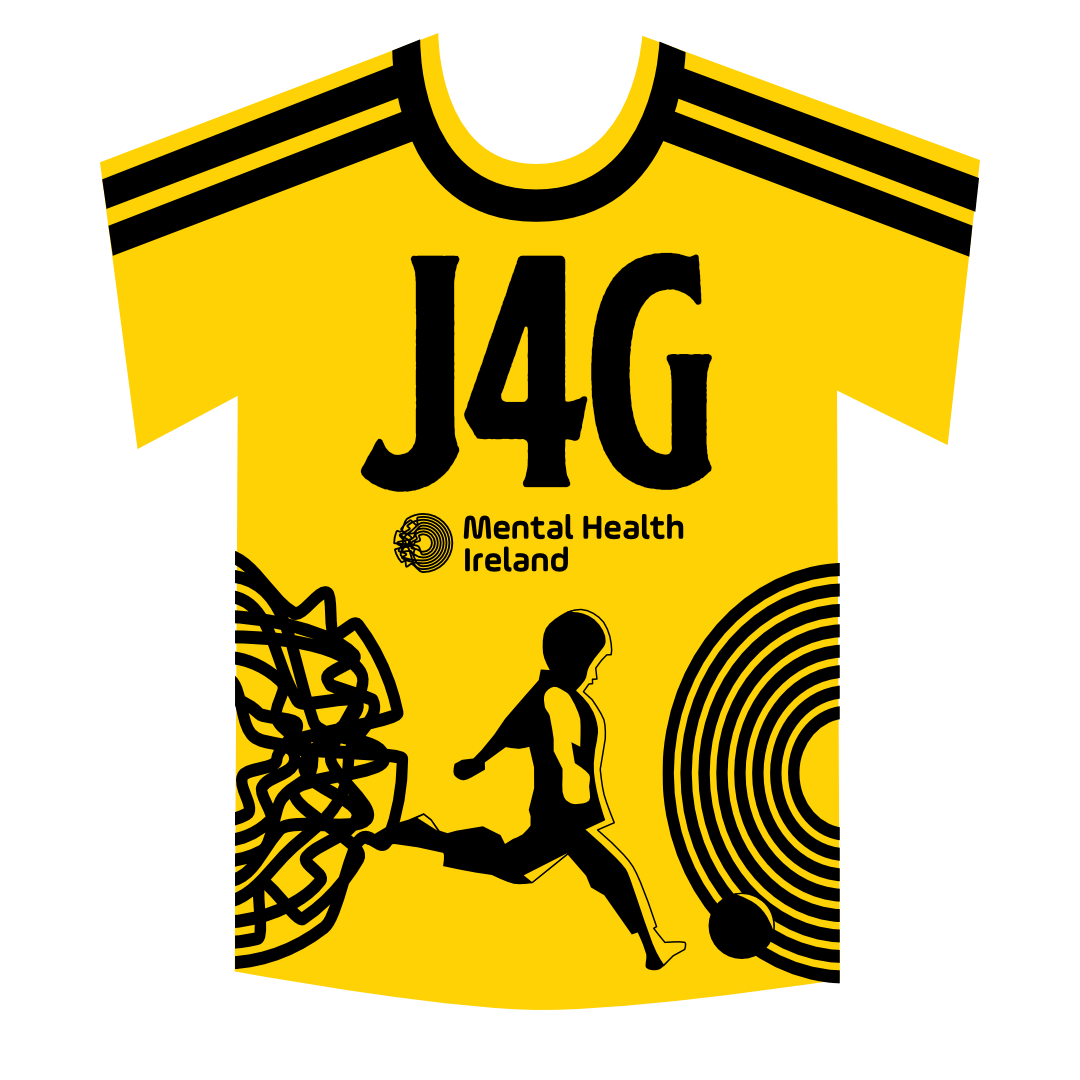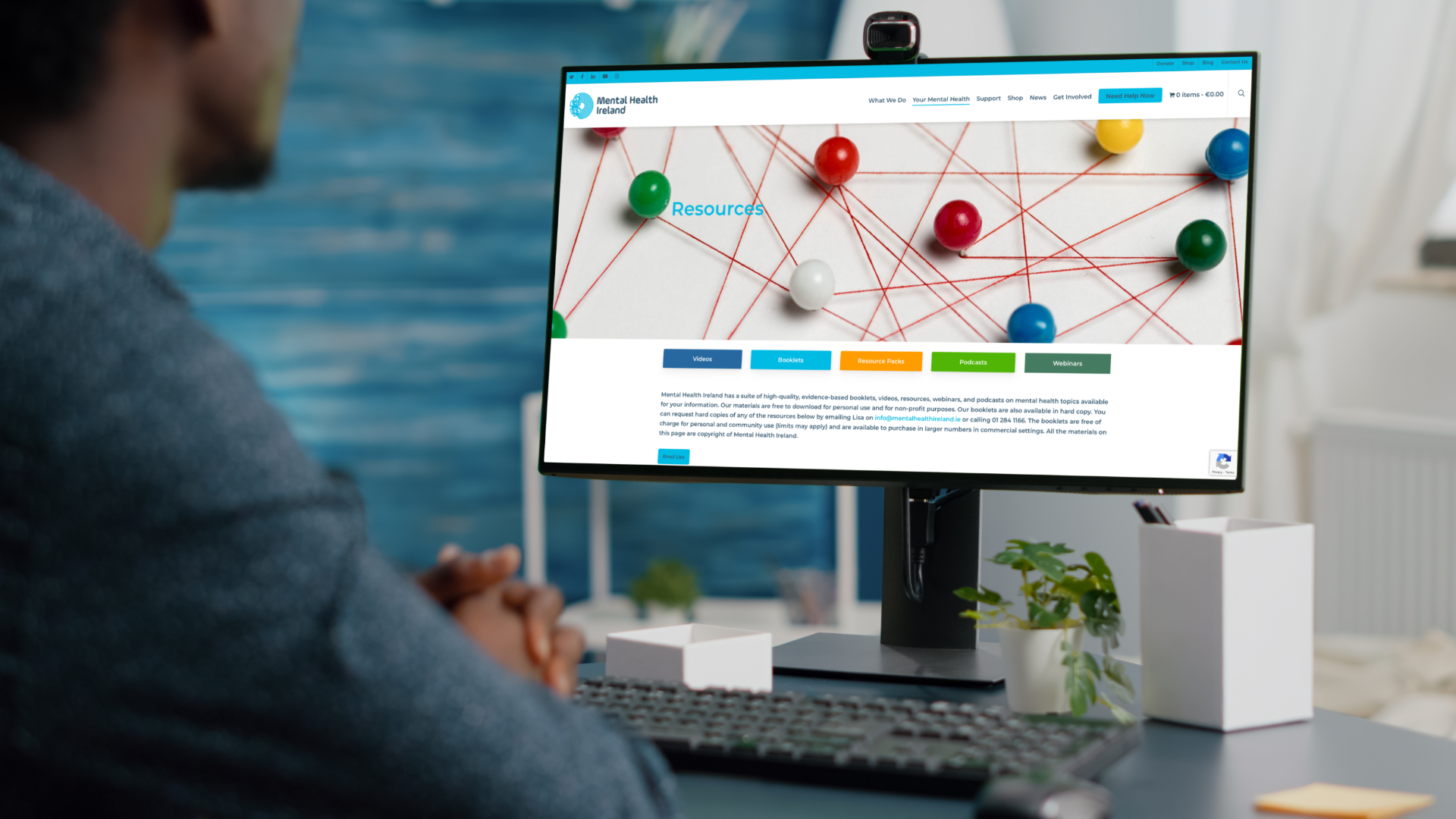Remember this is a mental health initiative...
Jumpers for Goalposts is a mental health and wellbeing initiative aimed primarily at men over the age of 18. The aim is to help men reconnect with friends and neighbours in a safe, healthy and fun environment. It provides them with an opportunity to seek and offer support to each other, if needed.
WE ARE NOT A MENTAL HEALTH SERVICE PROVIDER
Where to go if you have a Mental Health Difficulty
If you are affected by depression, anxiety or find it difficult to cope we would urge you to seek support from professionals.
Your family doctor is usually the first person to approach in relation to mental health concerns. Many people attend their General Practitioner (GP) when they feel they need more support for their mental health. In an emergency situation, and outside of GP hours, it is advised to attend your local accident and emergency department in your local hospital.
Mental Health Ireland also provide a list of Mental Health Services and Helplines - just click the button below.
J4G Information brochure
At each of the June 19 matches a small six page accordion brochure will be available to participants and spectators. It explains what Jumpers for Goalposts is about and provides some useful tips for mental health wellbeing as well as contact numbers for people in crisis or who need support. Click the download button below if you would like a PDF version of the document.

Five Ways to Wellbeing
Wellbeing is feeling good about yourself, the world around you and functioning well in everyday life, most of the time. Being resilient and coping with the normal stresses of life is also an important attribute of wellbeing.
Mental Health Ireland's Five Ways to Wellbeing are simple actions to practice each day to maintain or improve our mental health and wellbeing.
-
Connect
Make time each day to Connect. Connect with the people around you. With family, friends, colleagues and neighbours. At home, work, school or in your local community. By staying connected and nurturing these relationships we feel happier and more secure, giving us a better sense of purpose.
-
Be Active
Look for ways to be active everyday. Go for a walk or a run. Step outside. Cycle, play a game, garden or dance. Discover a physical activity you enjoy which suits your lifestyle and level of mobility and fitness. Research has shown being physically active can improve your mental health and wellbeing.
-
Take Notice
Be aware of the world around you and what you are feeling. Be Curious. Catch sight of the beautiful. Notice the changing seasons. Savour the moment whether you are walking to work, eating lunch or talking to friends. Pay attention to the present moment – to your thoughts, feelings and to the world around you.
-
Keep Learning
Try something new. Rediscover an old interest. Sign up for that course. Cook a new recipe. Take on a new responsibility. Setting yourself a new challenge and learning a new skill will increase your confidence which can improve your mental health and wellbeing.
-
Give
Giving to others is good for you. Do something nice for someone else. Thank someone. Volunteer your time or join a community group. See yourself and your happiness linked to the wider community can be incredibly rewarding and create connectedness with the people around you.

For more about Mental Health Ireland's Five Ways to Wellbeing click here.

Resources
Mental Health Ireland has a suite of high-quality, evidence-based booklets, videos, resources, webinars, and podcasts on mental health topics available for your information. Their materials are free to download here for personal use and for non-profit purposes. Their booklets are also available in hard copy. You can request hard copies of any of the resources by emailing info@mentalhealthireland.ie or calling 01 284 1166. The booklets are free of charge for personal and community use (limits may apply) and are available to purchase in larger numbers in commercial settings. All the materials on the page are copyright of Mental Health Ireland.
DISCLAIMER: Jumpers for Goalposts is NOT an organisation. It is simply an idea. Those associated with promoting Jumpers for Goalposts accept no liability whatsoever for any sort of bodily injury, illness or death sustained by any person participating in a game of Jumpers for Goalposts or any loss or damage to possessions or goods by whatsoever and howsoever their loss or damage is caused.
By playing a game of Jumpers for Goalposts you are confirming that you are a legal consenting adult or have parental or guardian consent; that you are physically fit in every way to be able to participate in these events; that you acknowledge that all sports has a risk of physical injury and accept full responsibility for all such risks as a condition of participation.
By playing a game of Jumpers for Goalposts you are agreeing to indemnify the event organisers for any and all the claims, loss and expenses of any sort arising from your participation in the game as a player and/or spectator.







